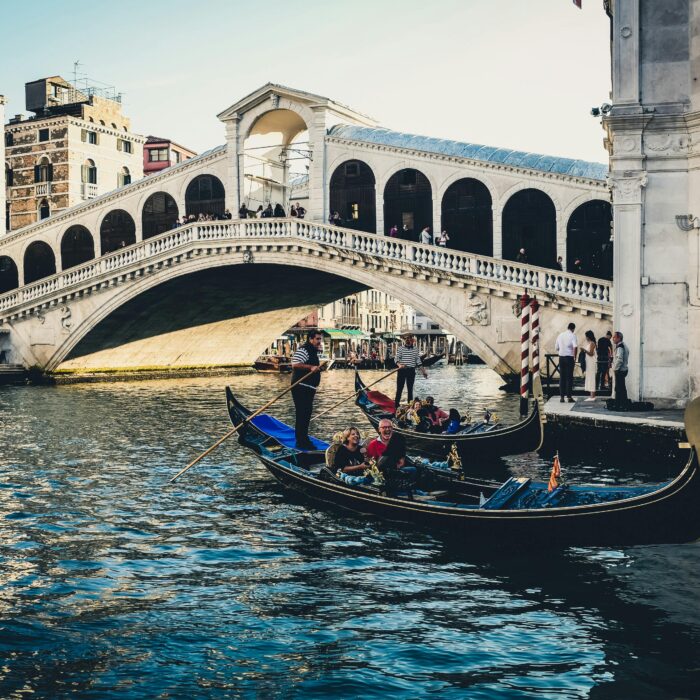You have no items in your cart. Want to get some nice things?
Go shoppingIn November 2010, just four months before I left London forever, radical Muslim cleric Abu Hamza was desperately fighting extradition from the UK to the United States on charges of attempting to establish a terrorist training camp in rural Oregon. Such was the gravity of Hamza’s alleged crimes, the government sought not only to hand him over to the Americans, but also to rescind his British citizenship.

Although Hamza would ultimately lose his fight against extradition, his solicitors argued that, since he had already been stripped of his Egyptian citizenship, the revocation of his British passport would essentially leave him “stateless,” a nomad without a country. Hamza and I have little in common, but his fear of statelessness is something I can very much relate to. Hamza was facing the unenviable prospect of having his British citizenship taken from him. I, on the other hand, chose to turn my back on my home and country. To this day, I retain my citizenship and passport. I wasn’t forced to relinquish a part of myself when I left the UK and sought to build a new life overseas. I do, however, still wrestle with the profound sense of dislocation that many expatriates experience.
Some days, I cannot help but wonder if I made a terrible mistake.
After moving to London from a bleak coastal town in Lincolnshire in 2005, I moved around the city frequently, sampling boroughs like prohibitively expensive canapés in a strange buffet: Camden, Ealing, Greenwich, Bromley, Bexley. Personal taste never played a role in my choice of where to live. Like so many other Londoners, my never-ending quest for suitable housing was determined entirely by the average rent in a particular area and the amount of time I could expect to spend commuting to the heart of Zone 1 – the quintessential formula for millions of Londoners. With each successive move, I gravitated ever outwards, as if the polarity of the cost of living in London were in direct opposition to the magnetism of my circumstances. I ultimately ended up on the fringes of South-East London, consigned to the darkest corner of Zone 4, as if in punishment for the all-too-common crime of youthful optimism. My address did indeed say London, but it felt like a white lie I was able to tell only by virtue of the city’s seemingly relentless sprawl and the statutory definition of Greater London’s outer boroughs.
My last flat, a tiny one-bedroom in West Thamesmead near Woolwich (across the street from HM Prison Belmarsh, in which Abu Hamza languished at Her Majesty’s pleasure for eight years until his extradition), cost me a relatively meagre £650 in rent every month, a laughably low sum in hindsight. Despite this, as the end of 2010 approached, even this amount was proving untenable. Like millions of Londoners, I struggled with the rapidly rising cost of living in the city. Unlike many of my fellow Londoners, I had an alternative – to embark on a modern-day voyage to the New World. My first wife, an American, had returned to the States to establish a home for us while my visa paperwork was being processed by the American Embassy in Mayfair. After almost eighteen months of interviews, separation, blood tests, chest X-rays, travel arrangements and yet more interviews, I was finally issued a visa. Two weeks later, just days before I was scheduled to fly to Boston from Heathrow, my wife confessed, over the phone, to having slept with two other men. I was faced with a choice – sever all ties with my wife and remain in London, or emigrate to America anyway.
I chose to leave.
When I left the UK, I was confident in my decision. I had grown tired of London and according to the immortal words of Samuel Johnson, tired of life. On the contrary, it was not London itself that had sapped me of the desire to remain in the city, but rather the constant worries of rising rents, job scarcity, and average salaries – problems that remain serious obstacles for the Londoners who have managed to cling precariously to the city and remain. In the end, like so many others, I had few choices but to leave London. At the time, I knew it was the right decision, even if circumstances beyond my control had largely dictated my course of action, but there are days when this surety offers little comfort.
To say that things have gone from bad to worse in London would be a considerable understatement. Data from the Valuation Office Agency indicates that in inner London, the median rent exceeds £1,500, whereas in outer London, renters can expect to pay upwards of £825 per month for the kind of flat in which I once lived. Median rents in inner London have increased by an average of £200 per month since the third quarter of 2012, and rents in outer London have risen by roughly £100 per month during the same period.
Despite claims that the situation is improving (which should be taken to mean that rents are simply not rising as rapidly as they have been), there is little hope on the immediate horizon for London’s renters. According to the British Property Federation, 61% of the 21,300 new homes built in London in 2013 were purchased by overseas investors. Of these buyers, 48% stated that planned to let, and an additional 19% said they were either investors with large property portfolios seeking to expand, or institutional investment organisations purchasing entire residential developments. Some experts fear that without regulatory oversight, continued overseas investment of this scale will lead to ever more expensive rents and a potential housing bubble. It is worth noting that the report cites the fact that “there are no legal restrictions of property ownership by overseas parties” as one of the most compelling reasons to invest in property in London, second only to the UK’s “benign and stable political environment.”
This supposedly benign and stable political environment could soon become significantly more volatile if the government fails to take action. This is precisely what Ed Miliband, speaking in the borough of Redbridge in May of last year, promised to do if Labour was elected to power following the recent general election. Miliband said Labour would cap rent increases based on average market rates, put an end to the excessive charges and fees often levied against tenants, and introduce laws designed to promote longer, more secure tenancies. Now, Miliband won’t have the opportunity to put these protections into place. What is certain, though, is that it will take a lot more than empty promises and co-opting upbeat pop songs for Labour to reach the countless disillusioned voters across the capital, as Tony Blair’s Labour party did in 1997.
One could argue that the current situation in London is hardly surprising. After all, demand for rental properties and a lack of space have long been problems in the capital. Those who seek to deny or distort the city’s rapidly worsening housing crisis often claim that the higher salaries Londoners can expect offset the increased cost of living, but this is woefully misleading. After all, rents are just part of the puzzle. The stagnant earnings observed across much of the city are the bitter yin to excessive housing costs’ yang.
Data from the Valuations Office Agency suggests that the minimum salary Londoners need to be earning in order to live on their own in a one-bedroom flat is £38,000. This puts the vast majority of the city’s housing out of reach to university graduates of every single area of study, according to starting salary information from graduates.co.uk. Measures such as Mayor Boris Johnson’s raising of the London Living Wage to £8.80 last November have accomplished little. A recent report published by the New Policy Institute indicates that 28% of Londoners live in poverty, 7 percentage points higher than the rest of England.
Even now, ten years after I first arrived at King’s Cross Station with a duffle bag, I wonder if I would be able to keep my head above water.
In the years since I left, London has never been far from my mind, and I often wonder how its landscape has changed. Not its physical appearance (though I have yet to lay eyes on The Shard, The Leadenhall Building, or Vauxhall Tower, but three of the additions to appear across the city’s skyline since I left), but its emotional geography; how the rising cost of living and punishing employment market have taken a psychic toll on the Londoners who were born and raised there. Londoners possess a toughness and resolve that denizens of few other cities in the world can match, but even the hardiest of souls have their limits.
Unlike many expats, living overseas has become harder for me as the years have passed, not easier. Many aspects of American society make living here decidedly difficult, and pervasive attitudes here often stand directly at odds with my personal values. The jingoistic fanaticism that masquerades as national pride in America disturbs me greatly, as does Americans’ enduring and reckless love affair with firearms. Never before have I encountered a nation so arrogant and frequently juvenile. I have little patience for Americans’ obsession for their history, considering the ease with which they forget it. It would be a grave disservice to make such a sweeping generalisation without admitting (to borrow and repurpose a popular meme for my own ends) that Not All Americans are like this. I have met some of the most intelligent, charming and thoroughly remarkable people I’ve ever had the pleasure of knowing during my time in the States.
Unfortunately, many Americans conform strongly to the very worst stereotypes, which has gradually led to the almost suffocating feeling of displacement I so often feel. Even after four years, I still feel like a guest in the country I chose to make my home; a guest whose presence is merely tolerated rather than welcomed – yet I am unable to return home, for to do so would jeopardise everything I have worked so hard for.
For all its many drawbacks, America has been good to me. So, at least for the time being, I think I’ll stay. My heart, however, will always belong to London.
Although I’ve never put much stock in the notion that there are two Englands – one surrounded by the tarmac moat of the M25, the other watching resentfully from outside – I cannot imagine living anywhere other than London. To me, to those who came before, and to those who will come after, London is a cruel but vital lesson in survival; that first electrifying relationship with someone who not only challenges but scares you, whose allure is simultaneously captivating and perilous. If anything, the city’s siren song is even more irresistible to me than it was a decade ago, its sweetly seductive chorus echoing across the cold, vast expanse of the Atlantic.

Dan Shewan
Originally from London, Dan now resides in Providence, Rhode Island, with his wife, dog, and cat. His nonfiction work and essays have appeared in a range of publications on both sides of the Atlantic, from major national newspapers to small literary journals.




